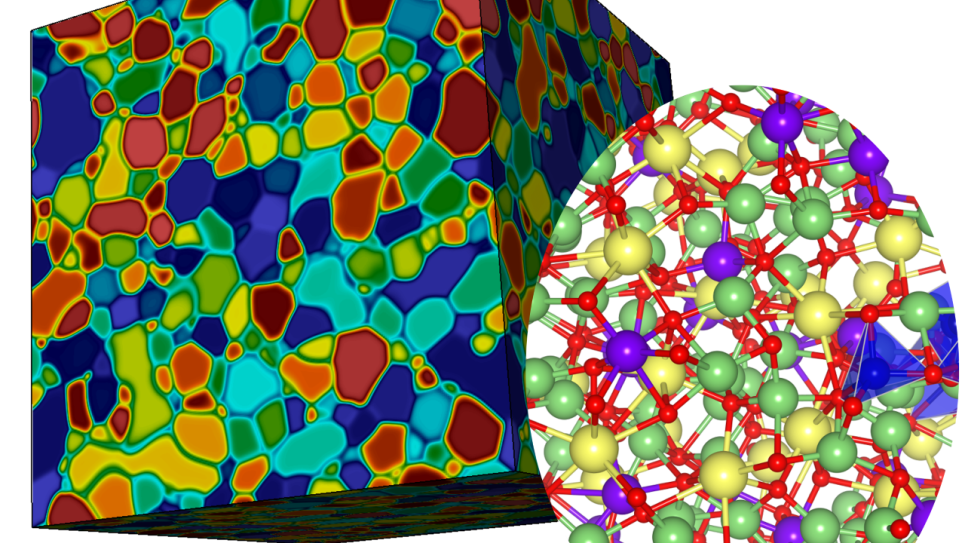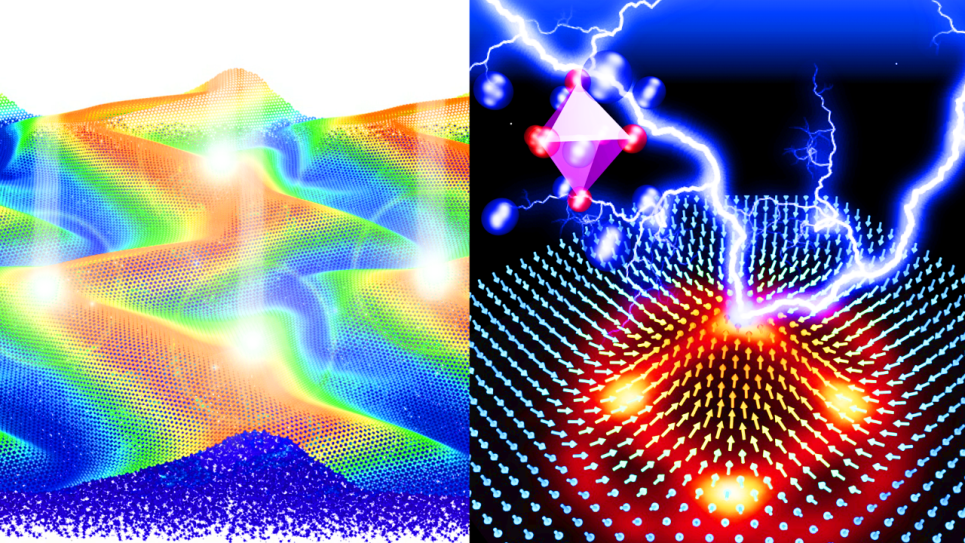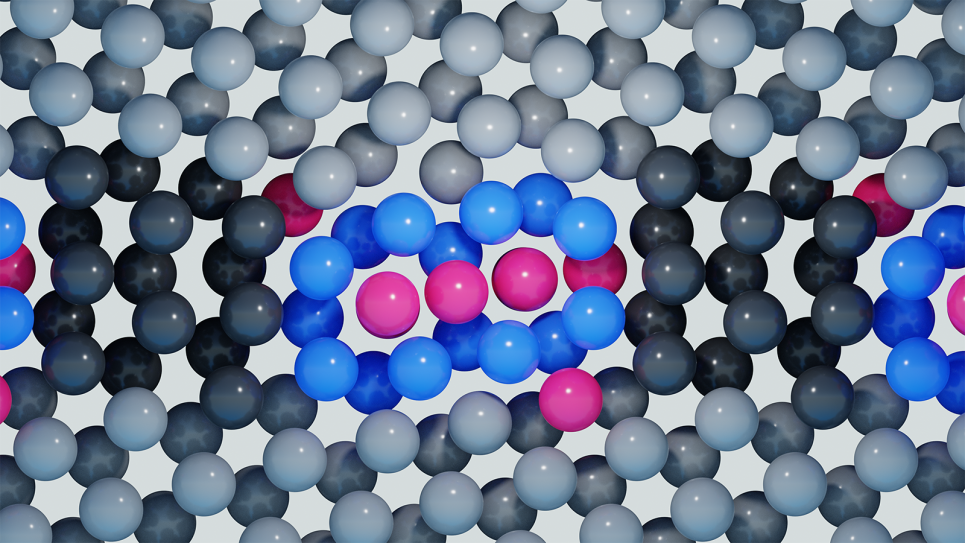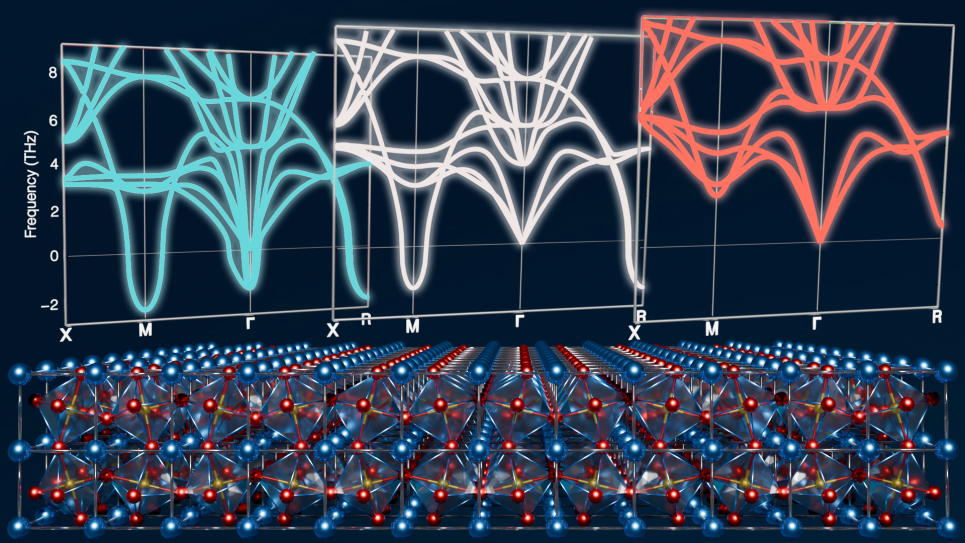
Predicted microstructure of a Li7-xLa3Zr2O12 solid-state battery electrolyte showing diverse orientations of individually colored grains. The foreground image shows an atomic-scale representation of a disordered boundary region where lithium ions tend to congregate and limit battery performance.


